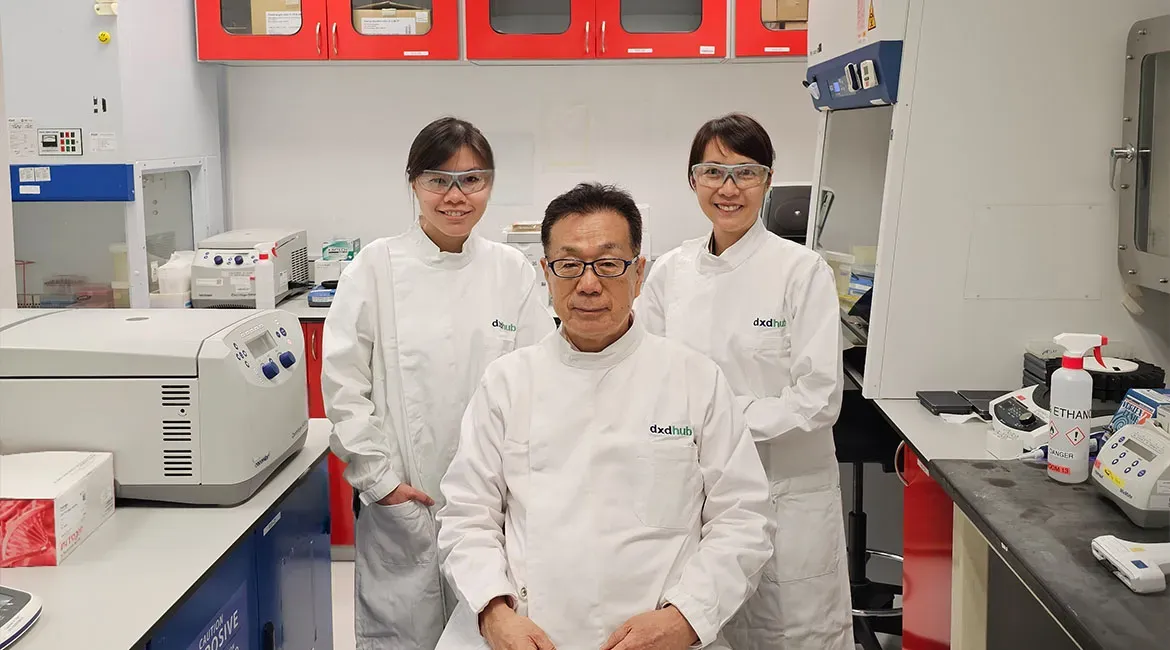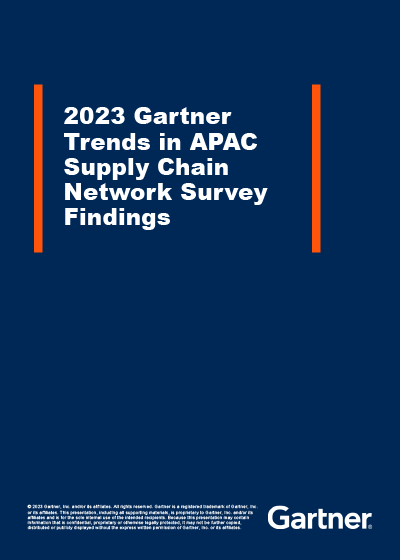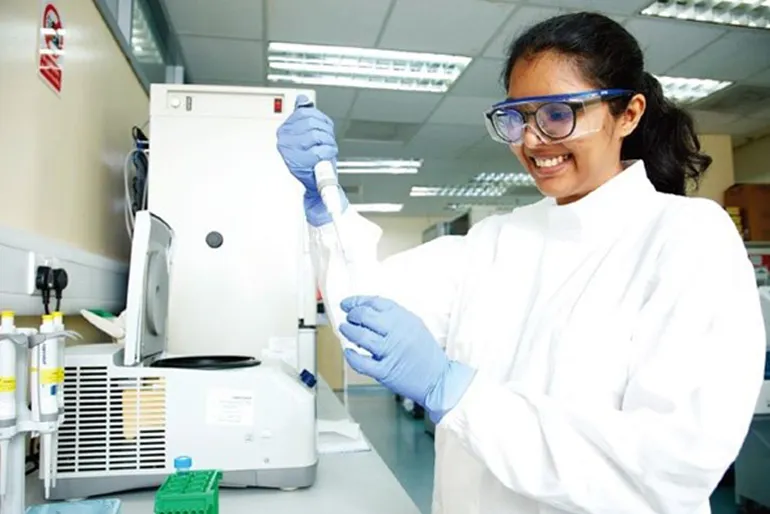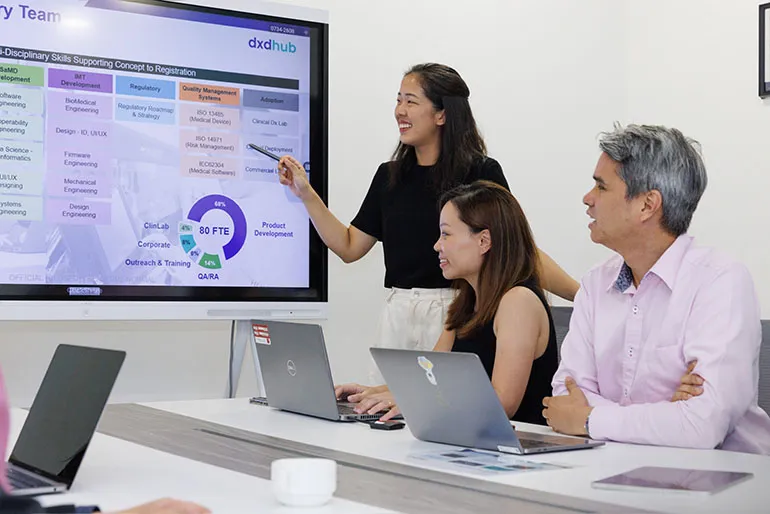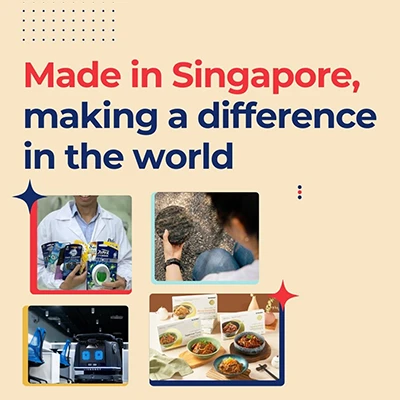Dr. Masafumi Inoue arrived in Singapore from Japan 29 years ago. Since then, he’s witnessed firsthand the transformation of Singapore's R&D landscape, including being a part of the team developing COVID-19 diagnostic test kits when the global pandemic struck.
His journey from a visiting researcher to Senior Principal Scientist at the Diagnostics Development Hub (DxD Hub), a national platform hosted by the Agency for Science, Technology and Research (A*STAR), offers a unique perspective on Singapore's evolution into a global hub for research and development (R&D).
Through Dr. Inoue's eyes, we explore how Singapore's collaborative ecosystem, supportive government policies, and state-of-the-art facilities have created an environment where groundbreaking innovations can rapidly move from concept to reality.
Government and scientists work together for rapid innovation and deployment
Singapore's R&D ecosystem is designed to facilitate rapid innovation and test-bedding. This was exemplified during the onset of the novel coronavirus in January 2020, when Dr. Inoue and his team developed the novel coronavirus diagnostic test kit “Fortitude” in just two days. The speed of development was matched by the government's agility in approving its use.
"By early February, it was already being used to test several hundred people per day. This was the result of smooth cooperation between the government - including A*STAR, the Ministry of Foreign Affairs (MFA), the Health Sciences Authority (HSA), and the National Research Foundation (NRF), which oversees national R&D funding - and us scientists, acting as one team," says Dr. Inoue.
Normally, the use of test kits requires layers of approval and the time to widespread deployment usually takes a few months. However, the Singapore government established a provisional authorisation process to enable rapid use of test kits at the initial stage of the novel coronavirus spread. This allowed Fortitude to be authorised for use in an unprecedented three days from application. Mass production began immediately, and it was provided to medical sites.
